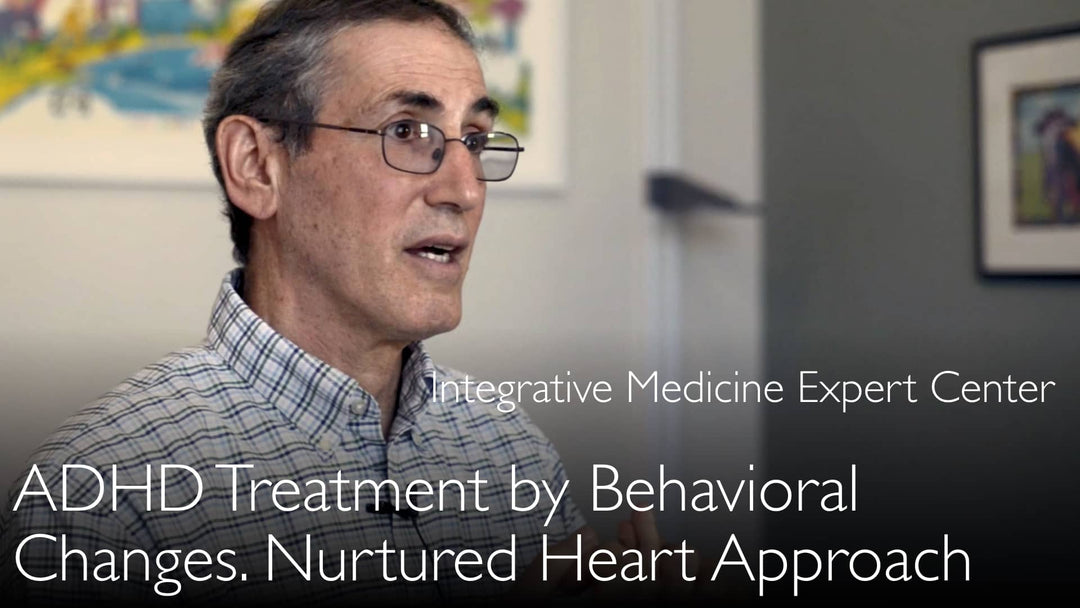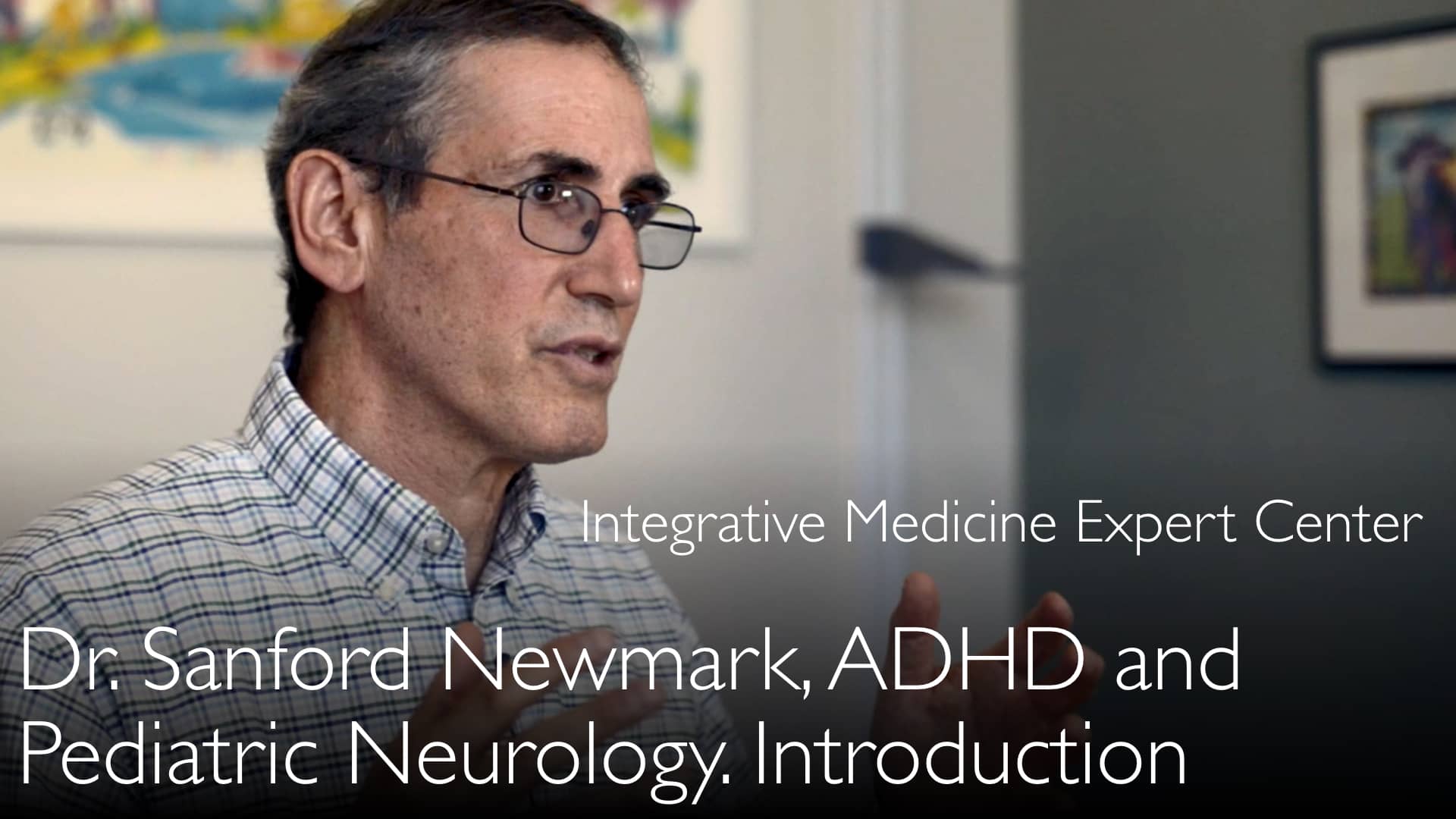ADHD 치료 분야의 선도적 전문가인 Sanford Newmark 박사(MD)는 행동 치료가 약물 치료만큼 효과적일 수 있다고 설명합니다. 그는 긍정적 강화와 일관된 훈육을 핵심으로 하는 'Nurtured Heart 접근법'을 상세히 소개하며, ADHD 아동의 자신감과 성공을 키우기 위해 신체 활동과 적합한 스포츠를 찾는 것의 중요성도 함께 논의합니다.
소아 ADHD에 효과적인 행동 치료 및 요법
목차 바로가기
ADHD 행동 치료의 효과성
ADHD에 대한 행동 치료는 효과적인 1차 치료법입니다. 산포드 뉴마크(Sanford Newmark) 박사는 부모와 교사가 아이의 행동에 어떻게 반응하는지가 치료 성공의 핵심이라고 강조합니다. 그는 양육 방식의 변화가 약물, 보충제, 식이 변경만큼이나 큰 영향을 줄 수 있다고 말합니다.
이 접근법은 리탈린(Ritalin) 같은 약물 치료의 필요성을 크게 줄일 수 있습니다. 안톤 티토프(Anton Titov) 박사는 의학적 제2의견이 ADHD 진단을 확인하고 최적의 치료 계획을 세우는 데 도움이 되며, 종종 약물 치료보다 먼저 행동 전략을 고려해야 한다고 지적합니다.
ADHD를 위한 '양육된 마음 접근법'
'양육된 마음 접근법(Nurtured Heart Approach)'은 산포드 뉴마크(Sanford Newmark) 박사가 적극 권장하는 구체적인 행동 치료법입니다. 핵심 원리는 긍정적 강화로, 아이가 바른 행동을 보일 때 적극적으로 주목하고 칭찬하는 것입니다. ADHD 아이들은 종종 지나친 부정적 피드백을 받기 때문에 이 접근법이 특히 중요합니다.
이 방법은 세 가지로 구성됩니다. 첫째, 좋은 행동에 강력한 긍정적 피드백을 줍니다. 둘째, 일관되고 예측 가능한 훈육 결과를 적용하되 소리 지르거나 설교하지 않습니다. 셋째, 올바른 행동을 장려하기 위해 보상 시스템을 활용합니다. 뉴마크 박사는 이러한 원칙을 꾸준히 적용하면 많은 아이들에게 현저한 개선이 나타난다고 말합니다.
성공 사례: 투손 학교의 변화
'양육된 마음 접근법'의 효과는 투손의 한 학교에서 뚜렷이 드러났습니다. 산포드 뉴마크(Sanford Newmark) 박사는 교장이 이 ADHD 행동 치료법을 전 학교에 도입한 과정을 소개합니다. 이 학교는 저소득 지역에 위치했으며, 중재 전에는 학업 성취도가 매우 낮았습니다.
몇 년 만에 학교 전체가 변했습니다. 특수 교육이 필요한 아이들의 수가 줄었고, 리탈린(Ritalin) 같은 약물을 사용하는 학생도 크게 감소했습니다. 학교의 학업 성적이 너무나 개선되어 애리조나 주로부터 '우수 수행 학교(performing plus)'로 지정받았습니다.
ADHD에서 스포츠와 운동의 역할
신체 활동은 비약물적 ADHD 치료의 중요한 요소입니다. 산포드 뉴마크(Sanford Newmark) 박사는 특히 과잉행동 아이들이 에너지를 발산하는 것이 매우 중요하다고 설명합니다. 더 나아가 방과후 활동은 ADHD 아이들이 학교에서는 쉽게 느끼지 못하는 기쁨과 성공을 자신이 뛰어난 분야에서 경험할 기회를 제공합니다.
무술, 가라테, 요가, 명상 같은 활동이 특히 도움이 될 수 있습니다. 산포드 뉴마크(Sanford Newmark) 박사는 이러한 훈련이 자기 통제력과 집중력을 키우는 데 효과적이라고 말합니다. 새로운 임상 시험들은 요가 같은 실천이 ADHD 증상 관리에 도움이 될 수 있음을 보여주며, 약물 외에도 다양한 치료 옵션이 있음을 시사합니다.
ADHD에 적합한 활동 선택하기
ADHD 아이에게 맞는 스포츠나 활동을 선택하는 것은 매우 개인적인 일입니다. 산포드 뉴마크(Sanford Newmark) 박사는 최선의 선택은 아이의 고유한 관심사와 필요에 달려 있다고 조언합니다. 일반적으로 ADHD 아이들은 복잡한 규칙과 긴 대기 시간이 있는 팀 스포츠(예: 야구)에 어려움을 겪는 경우가 많습니다.
이들은 테니스처럼 지속적인 참여와 개인적인 움직임이 필요한 활동에서 뛰어난 성과를 내는 경향이 있습니다. 가장 중요한 것은 아이가 진정으로 즐기는 스포츠를 선택하도록 하는 것입니다. 이렇게 하면 지속적인 참여와 긍정적 강화, 자신감 향상을 이끌어내어 행동 치료 계획의 성공적인 부분이 될 수 있습니다.
전체 전문
ADHD의 행동 치료는 약물만큼 효과적일 수 있습니다. '양육된 마음' 방법은 ADHD 치료에 매우 유용합니다. 소아 ADHD 통합 치료 분야의 선도적 전문가가 그의 풍부한 경험을 공유합니다. 주의력결핍장애(ADD) 아동을 위한 행동 치료는 약물 필요성을 줄일 수 있습니다.
ADHD 행동 치료: '양육된 마음 접근법'은 ADHD 치료에 성공적으로 사용되어 왔습니다. 주의력결핍장애(ADD) 아동을 위한 행동 치료는 약물 용량 감소나 필요성 제거에 효과적입니다. 부모와 의사는 모든 치료 계획에 ADHD 행동 치료를 포함해야 합니다.
ADHD 행동 치료는 약물 치료 전에 시도되어야 합니다. ADHD 통합 치료 분야 최고 전문가와의 비디오 인터뷰: 산포드 뉴마크(Sanford Newmark) 박사의 저서 "ADHD Without Drugs". ADHD 행동 수정은 학교와 가정에서 훈육 문제가 있는 아이들을 도울 수 있습니다.
의학적 제2의견은 ADHD 진단이 정확하고 완전한지 확인합니다. 의학적 제2의견은 또한 아이에게 최적의 ADHD 치료를 선택하는 데 도움이 됩니다. ADHD 아동을 위한 행동 치료는 약물 치료의 용량과 기간을 줄이는 데 성공할 수 있습니다.
ADHD 행동 치료는 매우 중요합니다. '양육된 마음 접근법'이 투손의 한 학교에서 시도되었고, 결과는 훌륭했습니다. 많은 아이들이 리탈린(Ritalin) 복용을 중단했습니다. 학교 성적이 크게 향상되었습니다.
스포츠는 행동 수정 치료의 중요한 부분입니다. ADHD 아동들은 일반적으로 규칙 중심의 팀 스포츠를 좋아하지 않습니다. 그들은 테니스 같은 활발한 개인 스포츠에서 뛰어납니다. ADHD 아이가 좋아하는 스포츠를 선택하도록 하는 것이 중요합니다.
소아 주의력결핍 과잉행동장애(ADHD, ADD) 및 자폐증 분야 최고 전문가와의 비디오 인터뷰. 의학적 제2의견은 ADHD 진단이 정확하고 완전한지 확인합니다. 의학적 제2의견은 또한 ADD 치료가 필요함을 확인합니다.
의학적 제2의견은 자폐증과 ADHD에 대한 최적의 치료 선택을 돕습니다. ADHD 및 자폐 스펙트럼 장애에 대한 의학적 제2의견을 얻어 치료가 최선임을 확신하세요. 스포츠를 통한 ADHD 행동 치료는 ADHD 약물만큼 효과적입니다.
안톤 티토프(Anton Titov) 박사: ADHD는 행동 문제입니다. 아마도 행동 수정의 역할이 있을 것입니다. ADD 치료를 위해 여러 행동 방법이 시도되어 왔습니다. ADHD 치료에 효과적인 것으로 입증된 행동 접근법은 무엇인가요?
산포드 뉴마크(Sanford Newmark) 박사: 부모와 교사가 ADHD 아동의 행동에 어떻게 반응하는지가 중요합니다. 양육 방식의 변화는 ADHD 아동의 성공에 큰 영향을 미칠 수 있습니다. 이 효과는 약물, 보충제 또는 식이 요법의 효능과 동등합니다.
많은 부모들은 합당한 이유로 ADHD 아이들에게 매우 좌절감을 느낍니다. ADHD 아동들은 반항적인 경향이 있습니다. 말을 듣지 않고, 가만히 앉아 있지 않습니다. 부모들은 학교로부터 전화를 받습니다.
부모들은 항상 아이에게 소리 지르는 패턴에 빠집니다. 반면, 부모들은 그것을 다루는 데 너무 지쳐서 아이가 하는 대로 내버려둡니다. 이는 부모와 아이 사이의 매우 부정적인 상호작용 방식입니다. 좋은 양육 접근법을 갖는 것이 모든 차이를 만들 수 있습니다.
ADHD에 효과적인 여러 행동 수정 방법이 있습니다. 저는 ADHD 행동 치료의 유용한 방법 하나를 논의하고 싶습니다. 이것은 '양육된 마음 접근법'이라고 불립니다.
이 접근법은 아이가 훌륭한 일을 했을 때 매우 긍정적으로 반응하는 것을 포함합니다. 부모들은 긍정적인 행동을 진정으로 주목해야 합니다. 이러한 아이들은 이미 삶에서 너무 많은 부정적 피드백을 받기 때문입니다. 아이가 올바른 일을 했을 때 긍정적인 피드백을 주어 도움을 줘야 합니다.
ADHD 아이들은 많은 것을 올바르게 합니다! 두 번째 부분은 일관된 훈육 결과를 갖는 것이지만, 부모들은 소리 지르거나 설교하지 않고 제공해야 합니다. 부모들은 그냥 일관되어야 합니다. 아이의 나쁜 행동은 예측 가능한 결과를 가져야 합니다.
ADHD를 위한 '양육된 마음 접근법'의 세 번째 부분은 올바른 일을 했을 때의 보상 시스템입니다. 저는 이러한 원칙들이 사용되었을 때 많은 아이들에게 극적인 개선을 보았습니다.
안톤 티토프(Anton Titov) 박사: '양육된 마음 접근법'의 핵심 원리는 긍정적 강화입니다.
산포드 뉴마크(Sanford Newmark) 박사: 정확합니다. 그것은 실제로 잘 작동하는 행동 수정의 원칙들과 일치합니다. 우리는 그것들이 잘 작동한다는 것을 알고 있습니다.
투손에 있는 한 학교에서 교장이 전 학교에 이 '양육된 마음 접근법'을 사용하도록 했습니다. 이 학교는 투손의 비교적 가난한 지역에 있었습니다. 매우 저조한 성과를 보이고 있었습니다.
몇 년 안에 전 학교가 뒤바뀌었습니다. 특수 교육 필요 진단을 받는 아이들의 수가 줄었습니다. 리탈린(Ritalin) 및 기타 약물을 사용하는 아이들의 수가 감소했습니다.
학교는 '우수 수행 학교(performing plus school)'가 되었습니다. 애리조나에서 그것은 큰 성과입니다. 이는 성적과 모든 측면이 향상되었음을 의미합니다. 그것은 정말 극적인 전환점이었습니다.
안톤 티토프(Anton Titov) 박사: 방과후 활동, 스포츠, 음악, 추가 활동들. ADHD 아이들에게 그것들의 역할은 무엇인가요? 이러한 활동들이 ADHD 진단을 받은 아이들을 도울 수 있나요?
산포드 뉴마크(Sanford Newmark) 박사: 첫째, 모든 아이들이 운동을 하는 것이 매우 중요합니다. ADHD 아이들이 좋은 신체 운동을 하는 것은 특히 중요합니다. 과잉행동 아이들은 밖에 나가 그 에너지를 태워야 합니다.
둘째, ADHD 아이들이 자신이 잘하는 일을 하는 것도 정말 중요합니다. 학교는 그들에게 가장 쉬운 것이 아닙니다. 아이들이 하루 종일 학교에 가면, 하루 종일 고군분투합니다.
그런 다음 아이들은 돌아와서 그냥 숙제를 하거나, 숙제를 위해 과외를 받거나, 또 더 고군분투합니다. 그들의 삶에서 기쁨과 성공감은 어디에 있을까요?
일부 ADHD 아이들은 스포츠를 정말 잘하거나, 미술, 춤, 또는 무언가를 만드는 것을 정말 잘합니다. 그들은 자신이 잘하는 것들에 대한 강화를 받기 위해 그런 활동들을 해야 합니다.
ADHD 아이들이 하루 종일 자신에게 어려운 일들을 하도록 강요하지 않는 것이 중요합니다. 그것은 미국 사회의 큰 문제입니다. 이러한 아이들 중 일부는 잘해야 한다는 압박을 받습니다.
아이들은 학교에서 좋은 성적을 받아야 합니다. 부모들은 아이들을 학교에서 바로 과외 선생님에게 보내고, 그런 다음 아이들은 숙제를 해야 합니다. 금방 그들의 전체 인생이 학교가 되어 버립니다. 그것은 그들의 발달에 파괴적입니다.
무술, 쿵푸, 가라테 배우기, 또는 스포츠와 같은 활동들은 훈육과 자기 통제력을 발달시키는 데 정말 좋을 수 있습니다. 명상과 요가는 도움이 될 수 있습니다. 우리는 이러한 것들이 ADHD 아이들을 도울 수 있음을 보여주는 임상 실험들을 보기 시작합니다.
약물 외에도 ADHD를 치료하는 다른 방법들의 세계가 있습니다. 주의력결핍장애를 치료하는 비약물적 방법들이 강조되어야 합니다.
안톤 티토프(Anton Titov) 박사: 무술을 언급하셨고, 요가를 언급하셨습니다. 어떤 유형의 스포츠가 다른 것보다 더 나은가요? ADHD 아이에게 최적인 스포츠나 활동의 결정적 특징은 무엇인가요?
산포드 뉴마크(Sanford Newmark) 박사: 그것은 개별 아이에 따라 다릅니다. 일반적으로 ADHD 아이들은 많은 규칙이 있는 팀 스포츠에 덜 관심이 있습니다. 그들은 지루함이 긴 스포츠에 덜 흥미를 느낍니다.
예를 들어, 야구, 특히 미국식 야구는 오랜 시간 가만히 서 있어야 합니다. 이는 주의력결핍과잉행동장애(ADHD) 아동에게 최적의 활동이 아닙니다. 주의력결핍장애(ADD) 아동에게는 테니스가 적합합니다. 테니스는 경기 내내 지속적으로 활동해야 하기 때문입니다.
그러나 실제로 ADHD 아동 중 야구를 매우 좋아하는 경우도 있으며, 그럴 때는 참여하게 됩니다. 각 아동에게 적합한 활동을 찾는 것이 중요합니다.





